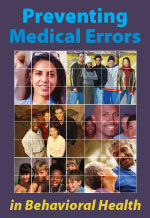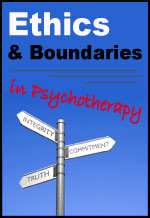With the holidays quickly approaching it is easy to forget about keeping up with your license renewal continuing education requirements. We’re here to help with our pre-holiday sale! This week only you can save 50% on the online courses shown below. Hurry, sale ends November 24, 2010!
Happy Thanksgiving from all of us at Professional Development Resources!
 A Dissociative Identity Disorder Casebook – 4 Hours CE – Reg $59 – Sale $29.50! – This course details the diagnosis, treatment, and case management of Multiple Personality Disorder, more recently known as Dissociative Identity Disorder. In-depth discussions include acknowledgement of the confusion and controversies surrounding this relatively rare disorder, rule-outs and co-morbid conditions to be considered, and the numerous clinical challenges encountered in treating individuals with multiple personalities. All sections are richly illustrated with case examples from the professional and popular literature, as well as the extensive clinical experiences of the author. 2008 | 50 pages | 30 posttest questions | Course #40-14 | Target Audience: Psychologists, Counselors, Social Workers, MFTs, OTs
A Dissociative Identity Disorder Casebook – 4 Hours CE – Reg $59 – Sale $29.50! – This course details the diagnosis, treatment, and case management of Multiple Personality Disorder, more recently known as Dissociative Identity Disorder. In-depth discussions include acknowledgement of the confusion and controversies surrounding this relatively rare disorder, rule-outs and co-morbid conditions to be considered, and the numerous clinical challenges encountered in treating individuals with multiple personalities. All sections are richly illustrated with case examples from the professional and popular literature, as well as the extensive clinical experiences of the author. 2008 | 50 pages | 30 posttest questions | Course #40-14 | Target Audience: Psychologists, Counselors, Social Workers, MFTs, OTs
 Alcohol & Intimate Partner Violence – 2 Hours CE – Reg $24 – Sale $12! – This course, which was developed by the National Institute on Alcohol Abuse and Alcoholism (NIAAA), is focused on the definitions, profiles, detection and treatment of intimate partner violence (IPV) that is associated with alcohol abuse. It explores the complex relationship between alcohol and intimate partner violence for both victims and perpetrators, addressing various models that attempt to explain this relationship. The course describes the signs of alcohol-related intimate partner violence and a number of techniques for assessing and intervening with individuals who might be affected by or engaging in alcohol-related intimate partner violence. Appendices include the Michigan Alcohol Screening Test (MAST), a danger assessment protocol, and a beginning dialogue for an interviewing technique that clinicians can use to initiate a discussion about alcohol and IPV. NIAAA | 2005 | 24 pages | Course #20-23 | Target Audience: Psychologists, Counselors, Social Workers, MFTs, OTs
Alcohol & Intimate Partner Violence – 2 Hours CE – Reg $24 – Sale $12! – This course, which was developed by the National Institute on Alcohol Abuse and Alcoholism (NIAAA), is focused on the definitions, profiles, detection and treatment of intimate partner violence (IPV) that is associated with alcohol abuse. It explores the complex relationship between alcohol and intimate partner violence for both victims and perpetrators, addressing various models that attempt to explain this relationship. The course describes the signs of alcohol-related intimate partner violence and a number of techniques for assessing and intervening with individuals who might be affected by or engaging in alcohol-related intimate partner violence. Appendices include the Michigan Alcohol Screening Test (MAST), a danger assessment protocol, and a beginning dialogue for an interviewing technique that clinicians can use to initiate a discussion about alcohol and IPV. NIAAA | 2005 | 24 pages | Course #20-23 | Target Audience: Psychologists, Counselors, Social Workers, MFTs, OTs
 Diagnosing ADHD in Adults – 3 Hours CE – Reg $42 – Sale $21! – This course will describe the unique ways in which the symptoms of ADHD manifest in adults, including the distinction between attention deficit and attention regulation. It also includes a discussion about the difficulties of accurately diagnosing ADHD in adults and the reasons the disorder is simultaneously over- and under-diagnosed. The DSM-IV diagnostic criteria for ADHD – as they apply to adult functioning – are placed into a context of the actual “soft signs” that can help clinicians identify areas of functional weakness for clients with ADHD. The author lists and details the components of a comprehensive diagnostic interview and emphasizes the value of collateral sources of historical information needed to establish an accurate diagnosis. Various formal assessment instruments are described, along with commentary about their utility in the diagnosis of adult ADHD. Finally, there is a section on the important area of comorbid conditions like depression and anxiety that frequently obscure and/or accompany ADHD. 2007 | 32 pages | 20 posttest questions | Course #30-38 | Target Audience: Psychologists, Counselors, Social Workers, MFTs, OTs, SLPs
Diagnosing ADHD in Adults – 3 Hours CE – Reg $42 – Sale $21! – This course will describe the unique ways in which the symptoms of ADHD manifest in adults, including the distinction between attention deficit and attention regulation. It also includes a discussion about the difficulties of accurately diagnosing ADHD in adults and the reasons the disorder is simultaneously over- and under-diagnosed. The DSM-IV diagnostic criteria for ADHD – as they apply to adult functioning – are placed into a context of the actual “soft signs” that can help clinicians identify areas of functional weakness for clients with ADHD. The author lists and details the components of a comprehensive diagnostic interview and emphasizes the value of collateral sources of historical information needed to establish an accurate diagnosis. Various formal assessment instruments are described, along with commentary about their utility in the diagnosis of adult ADHD. Finally, there is a section on the important area of comorbid conditions like depression and anxiety that frequently obscure and/or accompany ADHD. 2007 | 32 pages | 20 posttest questions | Course #30-38 | Target Audience: Psychologists, Counselors, Social Workers, MFTs, OTs, SLPs
 Improving Communication With Your Young Clients – 3 Hours CE – Reg $42 – Sale $21! – Healthy professional and personal relationships rely heavily on effective communication techniques and respectful conversational skills. Clinicians and other professionals who work with children and their families can benefit from adding to their repertoire by learning communication techniques that improve the quality of these relationships. The correct use of language can increase your young clients’ self-esteem, motivate children to learn, engage their willing cooperation, defuse power struggles, and teach conflict resolution skills. With this information, you will also be better prepared to manage difficult conversations. The purpose of this course is to teach clinicians effective and practical communication and conversational skills to use in the classroom and in one-on-one situations with young clients and their families. 2009 | 62 pages | 20 posttest questions | Course #30-33 | Target Audience: Psychologists, Counselors, Social Workers, MFTs, OTs, SLPs, RDs
Improving Communication With Your Young Clients – 3 Hours CE – Reg $42 – Sale $21! – Healthy professional and personal relationships rely heavily on effective communication techniques and respectful conversational skills. Clinicians and other professionals who work with children and their families can benefit from adding to their repertoire by learning communication techniques that improve the quality of these relationships. The correct use of language can increase your young clients’ self-esteem, motivate children to learn, engage their willing cooperation, defuse power struggles, and teach conflict resolution skills. With this information, you will also be better prepared to manage difficult conversations. The purpose of this course is to teach clinicians effective and practical communication and conversational skills to use in the classroom and in one-on-one situations with young clients and their families. 2009 | 62 pages | 20 posttest questions | Course #30-33 | Target Audience: Psychologists, Counselors, Social Workers, MFTs, OTs, SLPs, RDs
 Mental Health Medications – 1 Hour CE – Reg $12 – Sale $6!
Mental Health Medications – 1 Hour CE – Reg $12 – Sale $6! – A variety of medications are used to treat the symptoms of mental disorders such as schizophrenia, depression, bipolar disorder, anxiety disorders, and attention deficit-hyperactivity disorder (ADHD). Sometimes medications are used in combination with other treatments such as psychotherapy. This guide describes the types of medications used to treat mental disorders, side effects of medications, directions for taking medications, potential interactions with other drugs, and warnings about medications from the U.S. Food and Drug Administration (FDA). Also included are alphabetical lists of medications arranged by trade and generic names with the FDA-approved ages for each. 2008 | 24 pages | 12 posttest questions | Course #10-22 |
Target Audience:
Psychologists,
Counselors,
Social Workers,
MFTs,
OTs,
RDs The Grieving Self – 3 Hours CE – Reg $36 – Sale $18! –
The Grieving Self – 3 Hours CE – Reg $36 – Sale $18! – The annual number of deaths reported in the United States in the early part of this century was 2.4 million, about four per minute. The Grieving Self looks at the stories of a few of those who are recently bereaved to determine the major issues for those who grieve: aloneness, loss of self, social connections, anniversaries and holidays, self and others’ expectations, the need to continue living, ambivalence of recovery, grief dreams, medical problems. Studies are reviewed which indicate some researchers’ conclusions as to: 1) Gender differences between men and women who grieve; there are important questions regarding the recruitment of subjects and the data gathering process for gender differences research. 2) And, who among the grief survivors are best served by counseling and psychotherapy. This author, while agreeing with much of the research, challenges the belief that the emotional loneliness suffered by the bereaved is the single, major dynamic of the bereaved, and can only be alleviated through passage of time. It is felt that an effort to reconnect those who grieve to a stable sense of self can help the bereaved regain better function and reduce the length of the time they are consigned to painfully distressing lives. 2010 | 34 pages | 20 posttest questions | Course #30-49 |
Target Audience:
Psychologists,
Counselors,
Social Workers,
MFTs,
OTs
Like this:
Like Loading...

















